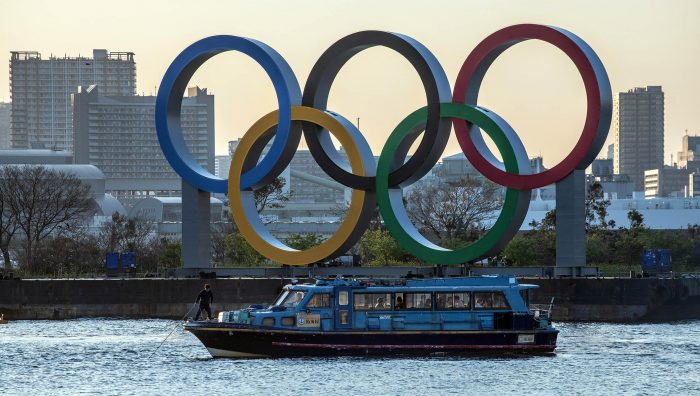Economic crises and corporate scandals have forced many large companies on the defensive in the face of public criticism or scepticism about their business activities and motives.
Even now, years after its collapse, the very mention of the name Enron conjures up images of greed, selfishness and reckless disregard for society.
However, companies are increasingly recognising that they need to reach out to the communities in which they operate and show that they value more than just their own balance sheets. Corporate social responsibility (CSR) is a means of protecting a company’s reputation. Properly chosen and correctly implemented, CSR programmes can create and reinforce a brand message. Where the public can see a consistency between CSR activities and the underlying business mission of a company, this can benefit the corporate profile by avoiding accusations of opportunistic public relations strategies.
Event planners can demonstrate in many ways their company’s commitment to wider social issues.
Preserving the environment by adopting green meetings strategies might be one such tactic. Involving staff members in teambuilding programmes that leave a lasting benefit to a community – say, by building homes in impoverished communities – might be another.
The notion of CSR is still relatively confusing and controversial. Is the promotion and implementation of socially and environmentally preferable corporate conduct a function of business or government? Is the implementation of CSR practices a cost or a value-enhancer? Is it just good PR?
According to the guidelines of the International Institute for Sustainable Development: “Properly understood, CSR should be seen as the way that firms – working with those most affected by their decisions (often called stakeholders) – can develop innovative and economically viable products, processes and services within core business processes, resulting in improved environmental protection and social conditions.”

CSR has made its way to Asia and is becoming a more important part of the way companies do business; bring employees, clients and the community into the fold; and address sustainability, environmental issues and social inequality.
The practice of CSR may be referred to by a variety of names: corporate responsibility, corporate accountability, corporate ethics, corporate citizenship or stewardship, responsible entrepreneurship, triple bottom line, responsible competitiveness or corporate sustainability, to name a few.
The UN Global Compact, ISO 2600, the European Commission, the International Institute for Sustainable Development and others have all endeavoured to outline ways in which businesses can adopt a CSR programme irrespective of their business sector, size or budget.
Here Mix looks to debunk the myths of CSR, encouraging companies to take a fresh approach to implementing it in their events, incentives and corporate trips.
Myth 1: CSR is just a fancy term for charity
This is perhaps the most pervasive myth about CSR. In fact, charity – or community outreach – is just one component of a successful CSR programme. The idea of implementing a company-wide programme actually encompasses areas like: corporate governance, the environment, human rights, labour practices, fair operating practices, consumer issues, communication and community outreach.
So, while donating time, money and resources to charitable causes is part of it, the holistic approach should be making business socially sustainable, not just financially sustainable.
In Asia, the trend has been slower to catch on than in Europe. In part, this has to do with the corporate culture and in part it is simply because companies in emerging markets are more focused on getting the business to a critical mass before they turn their attention to perceived luxuries such as CSR.
Myth 2: CSR is only for large companies
There is no question that larger organisations have more resources at their disposal and can move to implement large-scale CSR initiatives more easily. However, small businesses are no less responsible than large enterprises. They may not know and use the term “CSR”, but their close relations with employees, the local community and business partners often mean they have a naturally responsible approach to business.
In many cases, this means actively reaching out to the community, a focus on keeping employees happy in their jobs, and a greater concern for the impact of the business. Michael Porter, professor at Harvard Business School, explains: “There are countless win-win opportunities waiting to be discovered: every activity in a firm’s value chain overlaps in some way with social factors – everything from how you buy or procure to how you do your research – yet very few companies have thought about this.”
The goal is to leverage a company’s unique capabilities in supporting social causes, and improve the group’s competitive context at the same time, and Porter adds: “The job of today’s leaders is to stop being defensive and start thinking systematically about corporate responsibility.”
Myth 3: CSR is easier to achieve when governments offer initiatives and incentives
It is true that many European countries have established government-backed not-for-profit organisations that support CSR efforts for companies big and small. However, groups in Singapore, China, Thailand and other Asian countries have all been active in this area.
Gefei Yin, director and vice-president of China WTO Tribune and the Development Centre for Chinese CSR, said in a recent speech: “More and more Chinese enterprises are issuing CSR reports. According to a report by the Golden Bee Development Centre for Chinese CSR, there were in total 169 CSR reports published by Chinese enterprises in 2008. From last year to now, the listed companies in Shanghai Stock Exchange and Shenzhen Stock Exchange have already issued more than 330 reports.”
The development of CSR within an organisation can take on any number of forms, but one of the most obvious starting points is looking at how a company can make an impact in the markets in which it operates, addressing some of the most pressing concerns. That could be workers’ safety, conditions, social issues or as Red Bull did, charitable causes.
In 2008 and 2009, popular energy drinks brand Red Bull decided to launch a programme aimed at promoting a more peaceful, tolerant society in Thailand.
Asking for volunteers to work in charitable and community projects all over the country, the company ran television commercials with ads for different types of opportunities and the slogan, “How much time do you have?”
A year after the launch of the programme, 5,000 volunteers had applied for projects including caring for the mentally disabled, food health and hygiene, and conservation. The follow-up commercials documented the experiences of those who worked all over Thailand, featuring real community members, not actors. At the time of the push, the Red Bull Spirit CSR programme was one of the most recognised campaigns on television.
Through this unique initiative, Red Bull was able to emphasise its position as a caring company, not simply a capitalist group out for profits, but it was also able to facilitate mass awareness of some of Thailand’s most pressing issues.
Myth 4: There are limited options for CSR-focused events
CSR can seem overwhelming, and the idea of adding an events or incentive component may seem counter-intuitive.
But, events can be a way to add touchpoints to a CSR programme that are felt by every employee, client or delegate at the event. A cocktail reception that features art by a children’s school the company sponsored, a documentary that showcases the way that the company has improved its communication and relationships with employees at all levels, or an event designed around social, environmental or economic issues can all be effective.
More and more convention centres, event planning companies and even hotels and resorts are offering programmes that cater to the growing desire to use these types of opportunities to promote the group’s CSR goals and further entrench the philosophy in the corporate culture.
Helfried Scharf is head of external affairs and communications for Daimler South East Asia, which owns the Mercedes-Benz brand. Scharf has been involved with a number of high-profile arts sponsorships, such as Singapore’s Sun Festival, but the company has been involved in community and youth projects too.
“We’ve worked with schools on art projects, for example, encouraging young artists and helping with shows and exhibitions. The arts is a sector that fits our high-end brand positioning but it also provides us with a platform for giving back to the wider community,” he says.
Finding events that balances the company’s profile with its CSR objectives is the key to success.
CSR Programme:
Sarawak’s Tribal Wisdom
A new initiative from the Sarawak Convention Bureau in Malaysia offers a unique way of “thinking global and acting local” through its new Tribal Wisdom programme.
Incentive travel, events programmes and motivational speeches that support CSR initiatives can be built into any number of business events. Sarawak offers a special twist by bringing in the expertise and insights of its many indigenous peoples.
The new “Tribal Wisdom” programme invites one of six speakers, who hail from tribal areas in Sarawak and are now successful in fields as varied as business, politics and conservation, to share their life experiences and how their ancestry has influenced their success.
Another alternative is a truly experiential incentive that allows groups to spend time helping to provide a better future for others. Corporate groups can join a longhouse or a remote kampong and assist the local people in constructing much-needed facilities like medical clinics, schools, bridges and agricultural projects. As part of the traditional longhouse community, teams share in the simple everyday life of these people, learning about rice planting, how to catch fish in bamboo traps, local arts and crafts, and traditional music, games and dance. The experience is unforgettable, and the lasting impact on the community is something that cannot be calculated.
Jill Henry, CEO of the Sarawak Convention Bureau, says: “Tribal Wisdom is a great way of showcasing the richness of local cultures and at the same time a means of highlighting the stories behind the individuals concerned who have become successes in their respective fields. It’s an excellent platform for motivating your own team and staff.”
For further details see www.sarawakcb.com
UN Global Compact 10 Principles
Human Rights
1. Businesses should support and respect the protection of internationally proclaimed human rights; and
2. Make sure that they are not complicit in human rights abuses.
Labour Standards
3. Businesses should uphold the freedom of association and the effective recognition of the right to collective bargaining;
4. the elimination of all forms of forced and compulsory labour;
5. the effective abolition of child labour practices; and
6. the elimination of discrimination in respect of employment and occupation.
Environment
7. Businesses should support a precautionary approach to environmental challenges;
8. undertake initiatives to promote greater environmental responsibility; and
9. encourage the development and diffusion of environmentally friendly technologies.
Anti-Corruption
10. Businesses should work against corruption in all its forms, including extortion and bribery.


